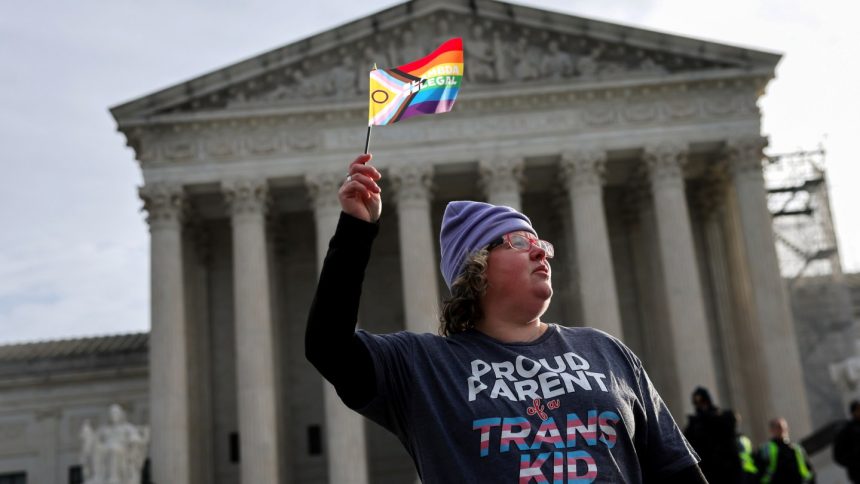Supreme Court Upholds Ban on Transgender Youth Care, Concerning Hollywood Activists
In a decision that could inflame parts of Hollywood amid a growing number of states barring medical treatment for transgender youths, a conservative majority of the U.S. Supreme Court upheld on Wednesday a ban in Tennessee on gender-affirming medical care for transgender minors.
The justices, in a 6-3 ruling, found that the 2023 law isn’t discriminatory. Chief Justice John G. Roberts Jr. nodded to the “fierce scientific and policy debates about the safety, efficacy, and propriety of medical treatments in an evolving field” but said questions about the law should be “left to the people, their elected representatives and the democratic process.”
In a fierce dissent, Justice Sonia Sotomayor said that the law “plainly discriminates on the basis of sex” while underscoring inevitable harm to transgender youth who’re being abandoned by the court to “political whims.”
The case has seen participation from Hollywood in a political climate that’s seen celebrities shy away from the spotlight on divisive issues. In a friend-of-the-court brief, Elliot Page, Nicole Maines and Lilly Wachowski, among other names, looked to undercut the prevailing narrative in right-wing attacks on transgender healthcare that transition ruins lives.
You Might Also Like
After undergoing an operation in which breast tissue is removed, Page said, “I couldn’t believe the amount of energy I had, ideas, how my imagination flourished, because the constant discomfort and pain around that aspect of my body was gone.” He described knowing at four-years-old that he wasn’t a girl.
Yellowjackets star Maines, who was the anonymous plaintiff in a landmark discrimination lawsuit in Maine that forced schools to allow transgender students to use the restroom that aligns with their gender identity, recalled a similar revelation. “I started identifying myself as a girl as soon as I could identify myself as anything,” she said, according to the court document.
Some of the case centered around arguments that gender-affirming healthcare is life-saving. As Maines described in the filing, “Being trans as a state of being is not in itself a death sentence. But what very well could be one is the denial of this care that has been proven to vastly improve the quality of life for kids like me, who without it will be forced to watch their body undergo irreversible, but preventable changes.”
These arguments were put to the side as the justices concluded that the Tennessee law doesn’t exclude individuals from medical treatment on the basis of being transgender. “Rather, it removes one set of diagnoses — gender dysphoria, gender identity disorder, and gender incongruence—from the range of treatable conditions,” Roberts wrote. There’s no indication that the law was designed to be discriminatory, he said.
Outside the U.S. Supreme Court last year when oral arguments were heard, Annette Bening called the fight for transgender rights the “civil rights issue of our era.”
“What these kids and families need is judicious counseling, sound medical advice, and an atmosphere of calm and love and acceptance,” Bening, who has a transgender son, said.
Also at issue in conservative attacks on transgender medical care: the belief that the decision to transition is made on a whim and at the behest of doctors. On this issue, Maines said that medical professionals “take a very cautious approach.” She added, “At every stage of my transition, the process was explained to both me and my parents by our doctor in ways that we could understand. They always made sure that I knew that, at any point, I could hit the brakes and cease treatment.”
The ruling shields several other states that have adopted similar laws restricting treatment for transgender youths.







